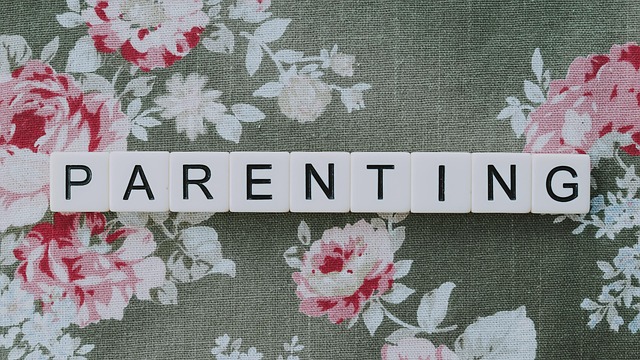What Is Putalofura?
On first glance, “putalofura” reads like a portmanteau or a misspelling gone viral. It doesn’t show up in dictionaries. It’s not in popular software or marketing lingo. Most likely, you stumbled onto it via a gaming forum, Discord chat, or decentralized social feed. That’s because the term sits solidly in the realm of internetnative speech. It’s a mix of edgy humor, ingroup signaling, and chaotic creativity.
Several interpretations have popped up. In Spanishspeaking circles, some guess it’s a mashup of provocatively charged words. Others speculate it’s entirely satirical—with no set meaning, just designed to test reactions or confuse outsiders. The ambiguity is the point.
Internet Slang Evolves Fast—Why It Matters
Slang has always been cultural shorthand—hiphop had “dope,” Silicon Valley had “pivot.” Online culture just cranks this cycle into hyperdrive. With every new app, subforum, or community comes a new dialect. Words like “yeet,” “simp,” or “based” have gone from obscurity to mainstream in months.
So why does putalofura matter? Because like all effective slang, it tells you where someone’s from—digitally speaking. Hear someone use it in a sentence, and you know they’re probably lurking in latenight meme servers or part of an ironic gaming subcommunity. It’s a digital dog whistle.
And here’s the thing—if you ignore this kind of language shift, you miss the signals. Brands try and fail to sound “relevant” because they overlook context. Cultural researchers, marketers, and creators alike need to track phrases like putalofura to decode what people truly mean, even when they’re joking.
Where It Came From (As Best We Can Tell)
There’s no verified birthdate or viral tweet that launched putalofura into the atmosphere. But its DNA appears internetnative: likely a spontaneous creation within tightknit online groups. 4chan threads, fringe subreddits, or even Twitch chats are often where such phrases originate.
Some theories speculate it’s an inside joke turned lingo by Spanishspeaking gamers, possibly morphing phonetically from something else entirely. Still, pinning it down keeps proving elusive. That’s the nature of protomemes—they resist definition long enough to build mystique.
One useful clue? Its usage pattern. Instead of being attached to specific actions (“yeet = throw”), putalofura is often dropped in convo as a vibesetter. It’s part noun, part personality jab, part noise. And it spreads specifically because it defies easy categorization.
Usage: How People Actually Say It
Here’s something worth noting: internet phrases don’t live in dictionaries—they live in context.
You’ll see putalofura used like:
“Bro went full putalofura.” “That post? Straight putalofura energy.” “Calm down with that putalofura move, man.”
It’s tonefirst, not grammarfirst. The word has a bit of chaos baked in. You drop it for sarcasm, irony, or to call out overthetop online behaviors. Think of it as the seasoning you throw in when something’s too weird or too wild to describe properly.
It might annoy some. But that’s kind of the charm. Like every generation’s lingo, it draws a line in the sand—you’re either tuned in, or trying to Google it with mild confusion.
Why It’s Going to Stick (At Least for a While)
Not every digital slang word survives. Some die after a few posts. But putalofura has legs. Why?
It rejects easy translation. The weirder a word, the harder it is for outsiders or algorithms to coopt. It sounds like something, even if it isn’t. Phonetically, putalofura feels like it should already mean something—our brains play catchup. It signals identity. If you use it fluently, you’re not just part of any online scene—you’re in the loop.
And of course, every time someone tries to add structure to it (like we’re doing now), it fights back. Its whole purpose might be to stay undefined. That’s how digital language guards its borders in a noisy, viral world.
The Bigger Picture: Slang As Cultural Survival
Zooming out: every phrase like putalofura hints at a deeper digital rhythm. It’s not about the word itself, but the system creating it. Fastevolving lingo is how modern tribes—yes, even online ones—survive. They build borders with inside jokes, unknown words, niche references.
Language is how groups protect culture. And today’s culture often happens first in discord servers, gaming chats, altTikTok, or some platform still in beta.
To understand these words isn’t to “get hip.” It’s to track change—in real time.
Last Word on Putalofura
We don’t know how long putalofura will float around. It could disappear by next week or morph into something totally new. But for now, it represents the sharp, messy, creative heart of internet culture.
You won’t find it in textbooks. You probably shouldn’t try to drop it casually during a business meeting. But if you see putalofura pop up in your feeds, don’t scroll past—pay attention. It means there’s a language shift going on underneath the noise. And someone’s already using it to say something.
Maybe not clearly. But definitely loudly.



